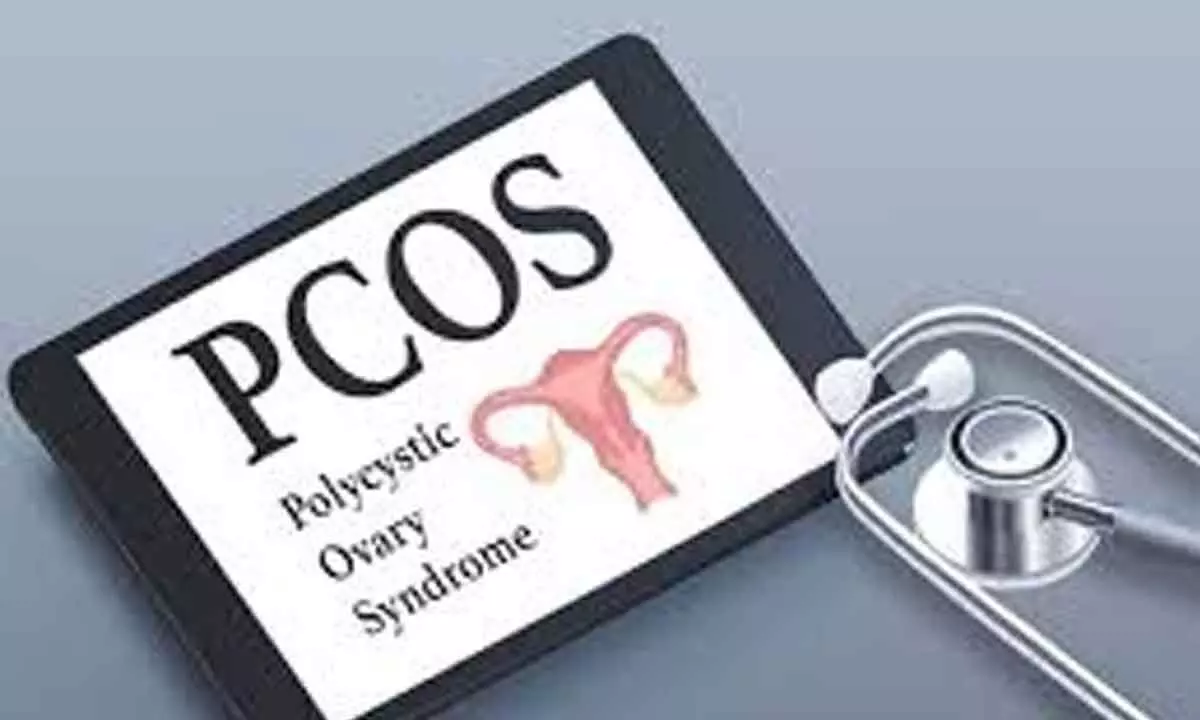Rise of PCOS and the impact of infertility post-Covid

Post the pandemic, many teenagers and young women have started complaining about menstrual abnormalities and cases of PCOS (Polycystic Ovarian Syndrome) have increased.
BENGALURU: Post the pandemic, many teenagers and young women have started complaining about menstrual abnormalities and cases of PCOS (Polycystic Ovarian Syndrome) have increased. It is a condition where a woman suffers from hormonal imbalance resulting in development of numerous small cysts (fluid filled sacs) in the ovaries.
Since September is PCOS Awareness Month, a trend being observed by the doctors at Motherhood Hospitals. PCOS can cause complications like weight gain, irregular periods, acne and may also lead to infertility. It has also been known to affect mental health as well
Impact of Covid 19 on PCOS was of stress and physical inactivity during the pandemic have been major factors leading to the spike in the number of PCOS cases. While the world battled a deadly virus, other health issues, like PCOS took a back seat. Women with this condition either failed to recognise the symptoms or did not get themselves treated which exacerbated the situation.
To elaborate more on this, Motherhood Hospitals, Indiranagar, Bengaluru, Consultant – Obstetrician and Gynaecologist, Dr Suhasini Inamdar said, "We have been witnessing a sharp rise in the number of PCOS cases since the outbreak of the pandemic primarily because of several lifestyle changes brought about by Covid. The covid-induced lockdowns enforced a lack of physical activity which is directly linked to hormone disruptions, increased stress levels and weight gain, which can lead to conditions like PCOS. In fact, it is believed that women with PCOS are more likely to suffer from a severe bout of COVID infection. A possible reason for the same could be attributed to insulin resistance and excess quantities of androgen which deter the immune system's ability to fight the virus."
She said, 'We are seeing 8-10 cases per month, especially young girls who are aged between 15-18 years and the post-Covid rise in cases is around 30%. While there is no complete cure for PCOS, its symptoms can be managed with the help of treatment. Additionally, women with PCOS are also recommended to adopt a healthier lifestyle by consuming a well-balanced diet, full of various nutrients and limiting their carbs and processed food intake. Since more than 50% of the women suffering from PCOS are overweight, it is suggested that they exercise for at least 30 minutes every day. However, indulging in heavy exercising is also not recommended', Dr Inamdar said.
She added, Women with PCOS are more likely to suffer from anxiety disorders and mood swings, practicing meditation and mindfulness can help in calming the mind. The Nova IVF Fertility Bengaluru, Fertility Consultant, Dr. Apurva Satish Amarnath said, "Your PCOS can impact your fertility in different ways. One of the commonest manifestations of PCOS is that ovulation doesn't happen regularly, and women have irregular cycles. This happens due to hormone imbalances of the reproductive hormones. Even in circumstances where ovulation occurs, hormonal imbalances may play a key role in preventing the endometrium lining of the uterus to develop completely, hence, implantation of an embryo may not occur. Hormonal imbalances can lead to menstrual and ovulatory irregularities. Irregular cycles can bring down your chances of a natural conception."
While PCOS is the most prevalent cause of infertility in women, however, it is not impossible to get pregnant. In addition to techniques that boost chances of getting pregnant naturally, there are several Assisted Reproductive Technologies which have been gaining traction in the last few years, Dr Apurva said.
She added, 'In case a plan is to conceive later in the future, one can also consider opting for an embryo freezing or cryopreservation technique wherein a fertilized egg is frozen and stored for a delayed implantation. Both egg and embryo freezing require the concerned person to be administered with fertility drugs that stimulate ovaries to produce multiple eggs to boost chances of a successful fertilization. Post the age of 35, fertility starts waning in women and those who suffer from conditions like PCOS have a heightened chance of being infertile as time passes by.
IVF can also be opted for women suffering from PCOS to help them get pregnant at a later stage in life, provided the quality of their eggs are good. However, the earlier you opt for an IVF procedure, the better the chances of success' she concluded.
















